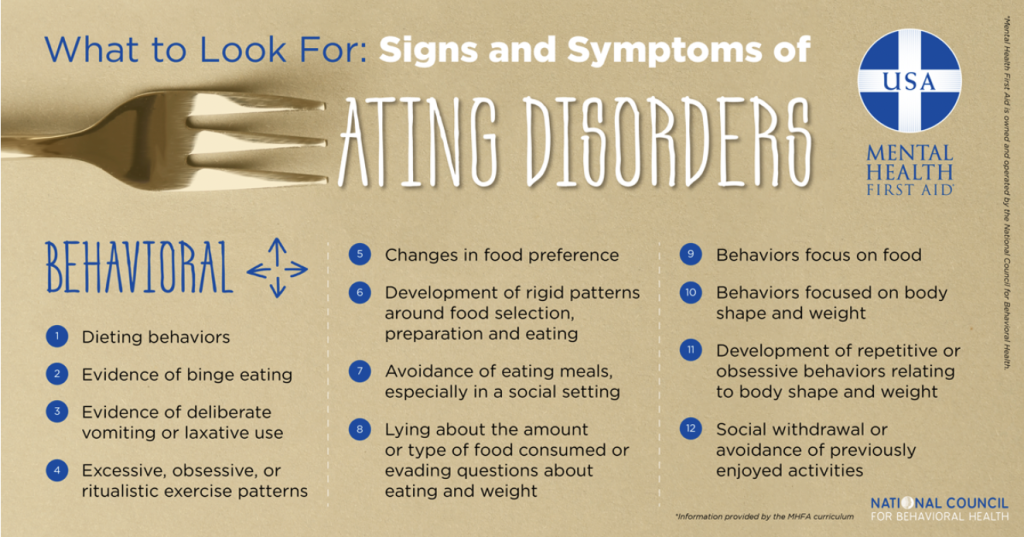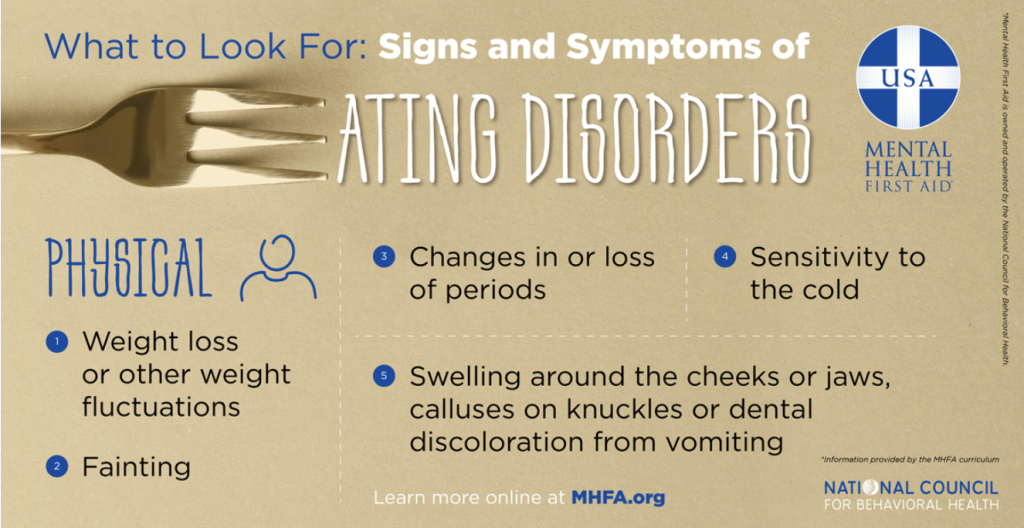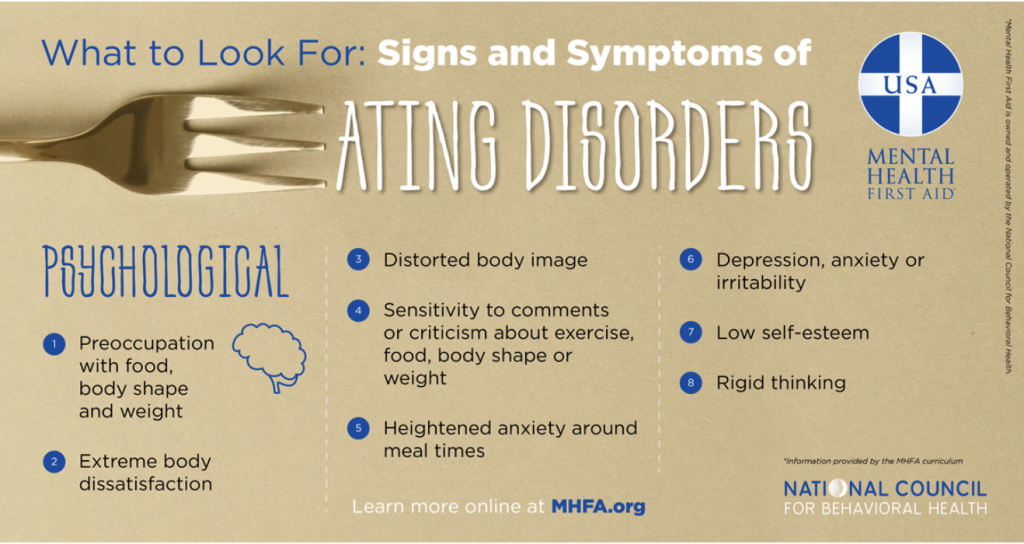Eating Disorders & Disordered Eating
If you or someone you love is in need of support in the Barrington area, contact Ascension Alexian Brothers Center for Eating Disorders at (855) 383-2224 for a free screening.
According to the National Alliance for Eating Disorders, eating disorders are “psychological conditions that affect your relationship with food. Each one involves serious changes in your normal eating behavior. These changes can be actions like eating much less than normal, severely overeating, engaging in harmful compensatory behaviors or having extreme obsessions about your body shape or weight. Eating disordersdo not discriminate based on age, gender, wealth, job status, sexual orientation, body shape and size, or race. They are capable of affecting anyone, and require ongoing support and, in some cases, medical treatment to recover from.”
Some common types of eating disorders include: Anorexia Nervosa, Bulimia Nervosa, Binge Eating Disorder, Other Specified Feeding or Eating Disorder, Avoidant/Restrictive Food Intake Disorder, and Pica. Learn more about these different disorders here.
National surveys indicate that 20 million women and 10 million men will have an eating disorder at some point in their lifetime.
To address growing concerns, BStrong Together partnered with Dr. Lacey Lemke, Dr. Melissa Lukse, and Asiyah Roman from the Ascension Alexian Brothers Behavioral Health Hospital’s Center for Eating Disorders and Christina Fitzgerald from Fitzgerald Nutrition to discuss disordered eating and eating disorders among youth in our community. View the program videos or listen to the entire podcast recording of the event – including the question and answer session – below.
CLICK HERE
Listen to the entire audio recording of Eating Disorders: Myths, Facts and the Benefits of Early Intervention in Disordered Eating including the Q&A session.
Sometimes it is hard to know the difference between individual idiosyncrasies and when eating behavior becomes disordered or considered an eating disorder. Learn more about those differences here.
Because early intervention increases the chance of recovery, it is important to know some of the warning signs and symptoms of an eating disorder. See resources and information below to help families who may be concerned about disordered eating or eating disorders in their family or have a loved one in recovery. There is help and hope.



Local Resources
Ascension Alexian Brothers Behavioral Health Hospital
(800) 432-5005 or (855) 383-2224
1650 Moon Lake Blvd, Hoffman Estates, IL 60169
Local Barrington Dieticians
Christina Fitzgerald, MS RD CSSD – Fitzgerald Nutrition
www.fitzgeraldnutrition.com
(224) 360-0708
[email protected]
Asiyah Roman, RD LDN – DietRD Nutrition
www.dietrd.com
(847) 490-8431
[email protected]
Additional Resources
To find a specialized eating disorder professional or treatment center
Education/Support
- The Alliance for Eating Disorders
- National Association of Anorexia Nervosa and Associated Disorders
- National Eating Disorders Association
- FEAST
- Brochures from the Alliance for Eating Disorder Awareness
- BStrong Together Eating Disorders/Disordered Eating Resources & Information Handout
Articles
- When is it an Eating Disorder and Not Disordered Eating?
- Eating Disorders Essential
- How to Help Someone with an Eating Disorder
- What Are Eating Disorders? Symptoms, Causes, Diagnosis, Treatment and Prevention
- FEAST Info for Parents
- The Isolating Nature of Eating Disorders
Books
- How to Help Someone with an Eating Disorder: A Practical Handbook by Pamela Macdonald
- Skills-Based Caring for a Loved One with an Eating Disorder by Janet Treasure, Grainne Smith, & Anna Crane
